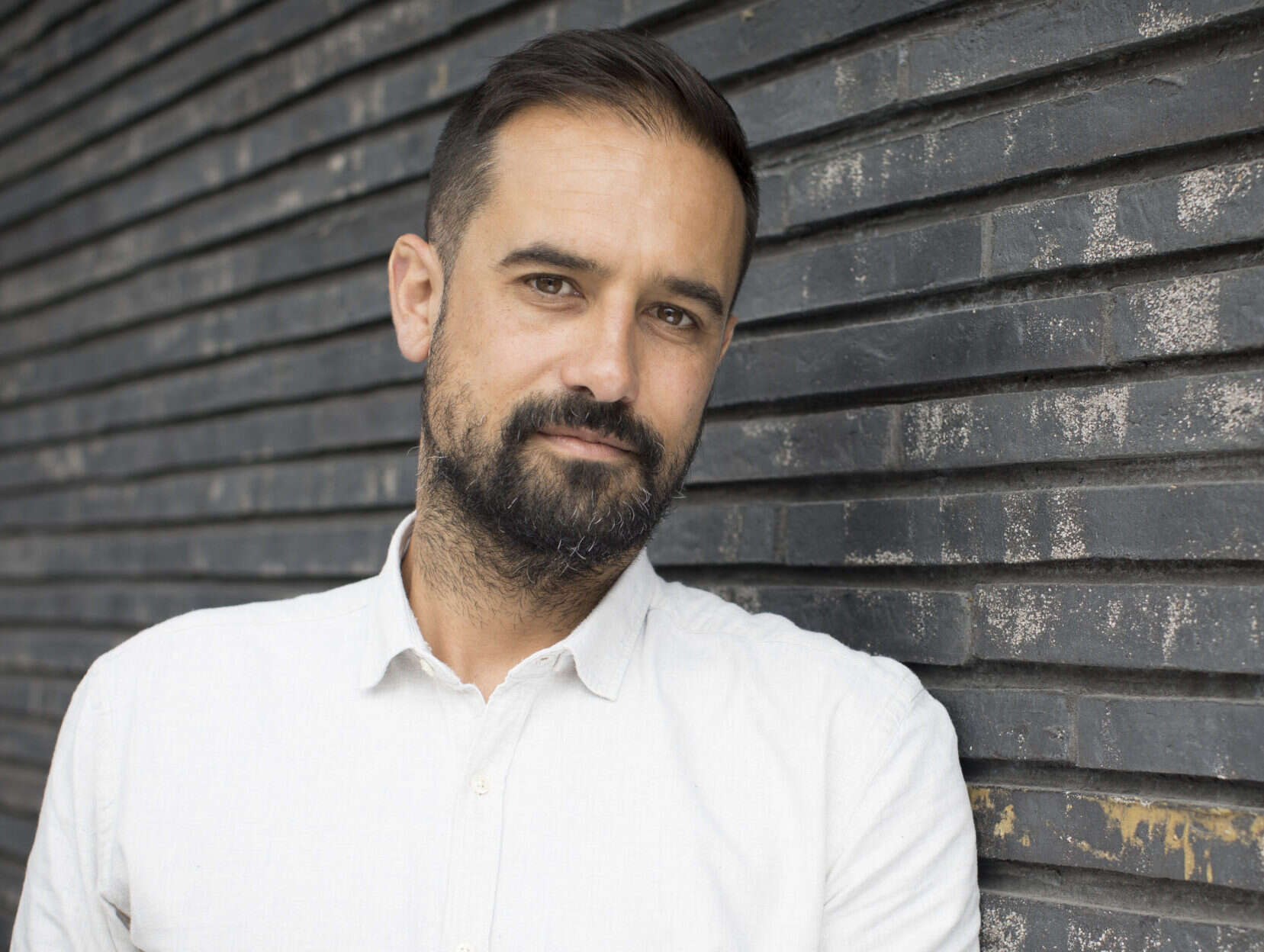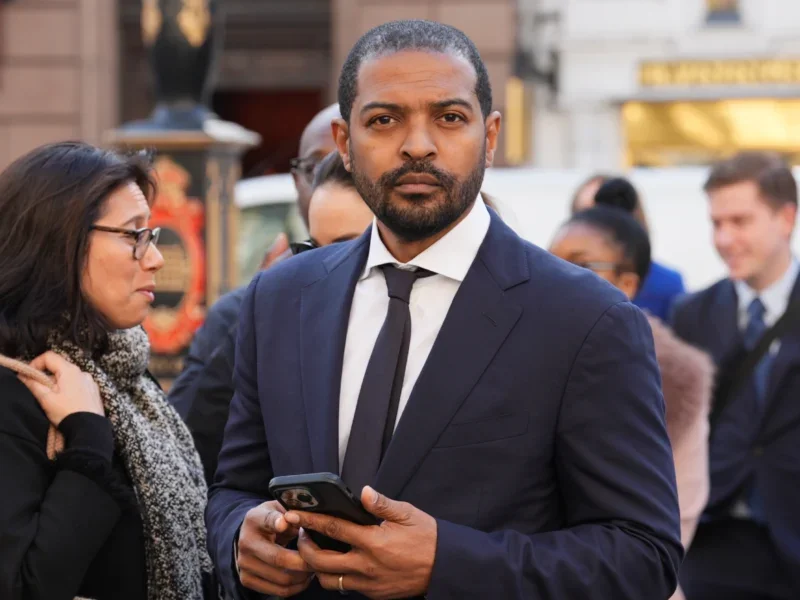
Actor Noel Clarke contacted a number of people on the eve of publication of a Guardian story about his alleged sexual misconduct, with conversations leaving some women “shaken, fearful and in tears”, the High Court has heard.
Paul Lewis, The Guardian’s head of investigations, said he did not want to give Clarke longer than necessary to respond to the allegations before publication out of fear that he would discourage women from speaking out.
Clarke is suing the newspaper’s publisher Guardian News and Media (GNM) over seven articles and a podcast, including an article in April 2021 that said 20 women who knew him professionally had come forward with allegations of misconduct.
The Doctor Who actor, 49, denies the allegations and claims several people who have made claims are part of a conspiracy to defame him.
Giving evidence at a High Court hearing on Monday, Lewis said his team gave Clarke 24 hours notice to respond before publication, which was then extended to 76 hours.
He said: “We thought there was a risk that if Mr Clarke had an extended period of time, it would increase the possibility that some of these women would retract their allegations or be discouraged from speaking.
“They felt Mr Clarke had a reputation for being threatening, for using legal action against people who crossed him.”
In a witness statement, he said reporters Sirin Kale and Lucy Osborne were told Clarke “had hired private investigators and had been pressuring women to stay silent”.
He said he believed that Clarke and his business partner Jason Maza had contacted “at least ten people”, with some of the conversations leaving women “shaken, fearful and in tears”.
“I believed that, with more time, Mr Clarke and Mr Maza could succeed in persuading vulnerable women to withdraw their co-operation, perhaps by threatening them, and in doing so could potentially scupper the publication of any potential story holding him to account for his alleged behaviour,” Lewis added.
Maza is not due to give evidence in the libel trial.
Philip Williams, for Clarke, said previously in written submissions that the actor was “barely able to reply to the allegations” published by The Guardian and was “perceived as a criminal by all those who previously trusted and worked with him”.
He described The Guardian’s 24-hour response period as “highly unreasonable”.
Lewis replied: “These issues were issues that were within Mr Clarke’s direct line of knowledge.
“It was also the case that with some allegations Mr Clarke was aware of them and he had been fighting them. It wasn’t going to arrive cold on his desk.”
On Friday, audio of a conversation between Gangs of London and Red Eye actress Jing Lusi and Guardian journalists was played to the court.
Speaking weeks before the Guardian articles were published, Lusi said Bafta’s announcement that it would give Clarke the Outstanding British Contribution to Cinema Award was a “loaded gun”.
She said: “He is either going to use it to dupe girls and lure them back to his lair or use it to silence them.”
She continued: “It is a double-edged sword he is going to bring down on women.”
Referring to Clarke’s first Bafta win in 2009, Ms Lusi also said that he “dined out on that ticket”, and that he “could not stop talking about it” when the pair worked together on a film in 2018.
In court, Williams, for Clarke, said that Lusi’s claims were “outrageous”, and asked whether she wished to withdraw the “lair” allegation. Lusi replied: “No.”
Williams later said: “You were part of the campaign against Mr Clarke’s Bafta.
“That was fuelled by jealousy, spite and the fact you thought that he was mediocre.”
Lusi replied: “That is not correct.”

Lusi also alleged Clarke had offered to do a read-through of a script she had written in his bedroom while they were working together on the film SAS: Red Notice in Budapest.
Lusi also alleged that at another dinner Clarke “told me in explicit terms that he had fantasised about me, describing to me what he wanted to do to me”, which she said left her “feeling so disgusted”. She added that he gave her a “clear threat” not to tell anyone about it.
Noel Clarke vs Guardian witnesses recap
Over the past two weeks other women have been giving evidence in The Guardian’s defence, speaking about their experiences with Clarke.
One actress, known as Imogen, told the High Court that Clarke invited her to dinner in 2014 when she was 20 years old.
She said he propositioned her for sex and offered to take photos, talked about going to brothels and tried to kiss her on the street after the meal, describing him as “sexually threatening”.
Clarke denies ever having been to a brothel and said Imogen was flirting with him by putting on his glasses and suggesting to be his secretary.
A woman who worked alongside Clarke as a costume assistant, Joanne Hayes, told the court that he made sexual comments to her while they were alone in his trailer on the set of Doctor Who in 2004.
She said in a witness statement: “I asked Noel if he had his costume. He invited me into the trailer and I thought nothing of it. Then there was a complete flip of tone and from nowhere Noel remarked on my having long hair.
“He said something like: ‘I like girls with long hair. It’s nice to have something to hold on to when I do them from behind.’
“This wasn’t in a jokey or cheeky tone. It was clearly sexual and I understood it as being a sexual advance to me.”
Both women said they felt they could not speak up as young women in the industry.
The next day an actress, known as Penelope, claimed that after a sex scene was filmed, an aroused Clarke cleared the room and in a “hushed but forceful voice” insisted that she look at his penis.
She added: “He was saying things like, ‘it’s massive, everyone’s told me it’s big’ and that ‘you have to look, you want to look at it, look at it’.
“It wasn’t even a question of whether I wanted to – he was demanding it… I was begging Noel to bring the crew back into the room.” She said Clarke later separately made a comment about her bottom during a costume fitting.
Clarke said in his witness statement: “If it is implied or suggested that Penelope’s nudity was for my sexual gratification, this is strongly denied.
“The only purpose of any exposure or nudity was for artistic effect.”
Another actress, known only as Mila, said she felt “humiliated and totally powerless” when Clarke directed her in a production and kept telling her to bend over while she acted in a scene that required nudity from the waist down.
She told the hearing that for the rest of the shoot, Clarke often asked her to “sit on his lap and made inappropriate sexual comments”.
A woman, known only as Ivy, who had a brief relationship with Clarke told the court she was “horrified” to discover he had shared nude photos of her without her consent.
Davie Fairbanks, a former friend and colleague of Clarke’s, alleged he was asked to book hotel rooms and make arrangements for Clarke to meet up with women. He also said Clarke showed him a nude photo of Ivy.
Clarke said he did not share the photos of Ivy and that Fairbanks has a “grudge” against him and that the pair have been in dispute over intellectual property rights in the script of one of his projects.
Then last week (24 March), fan Naome Morris told the court Clarke repeatedly asked to meet her for sex and groped her under a table at a public lunch when she was 18.
Clarke said in his witness statement: “I did not take advantage of her in any way, and did not pressure her into meeting or agreeing to a sexual relationship in any way.”
Gina Powell was part of Clarke’s production company Unstoppable between 2014 and 2017, said she felt “heartbroken” and “violated” after he allegedly groped her in an elevator.
She also accused him of exposing himself to her in a car, brushing off her concerns about his sexual behaviour towards other women, keeping a hard drive of naked pictures of others and screaming at people on set.
In his witness statement, Clarke said Powell often sent him links to porn websites and discussed her “sexual exploits” with him.
Film producer Garry Moore said he was “a bit shocked” when Clarke showed him footage from a sex scene of an unreleased film at a meeting in 2014, saying he believed Clarke “was showing me images of the naked actresses to show that he could get actresses to do anything that he wanted”.
Clarke said he was he was “within my right to have access to clips of the movie” due to being its producer.
The hearing before Mrs Justice Steyn is due to conclude in April, with a decision expected in writing at a later date.
Email pged@pressgazette.co.uk to point out mistakes, provide story tips or send in a letter for publication on our "Letters Page" blog

